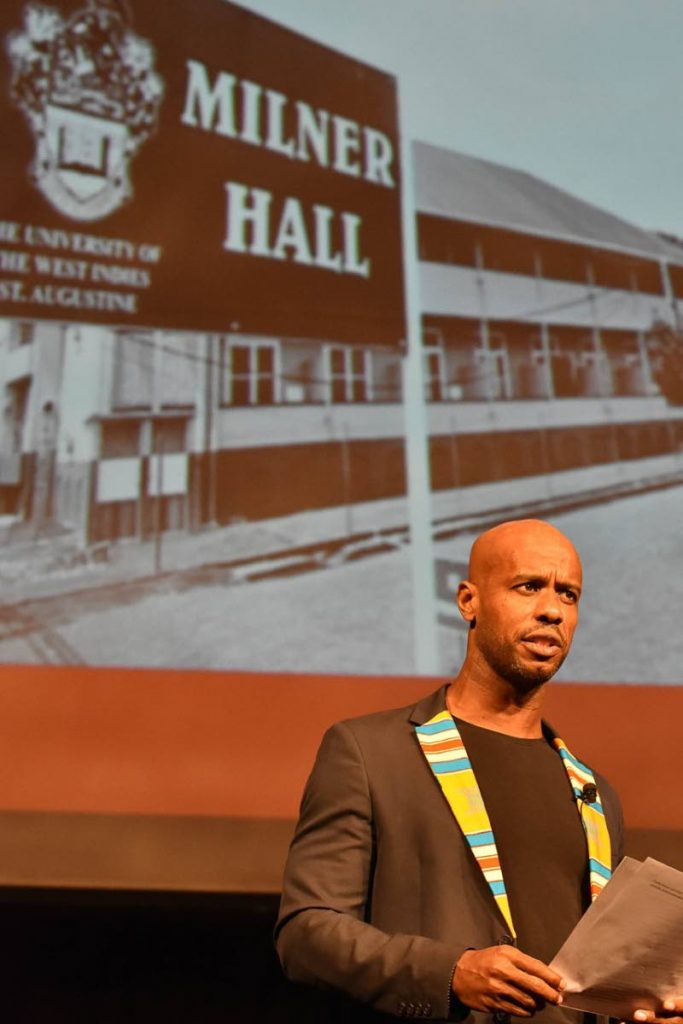Support for call for race relations commission

Director of the Caribbean Freedom Project Shabaka Kambon believes a race-relations commission in Trinidad and Tobago could be a "vehicle" which can drive change on a topic that is often "brushed over" in this country.
This follows Justice Frank Seepersad's suggestion to implement such a committee.
On Tuesday – Indian Arrival Day – Seepersad said the “paradise” his indentured Indian ancestors found when they were brought to “Chinidad” is in peril.
This, he said, was owing to crime, divisiveness and dishonesty, among other things.
He called for reform of the Constitution, a national development plan and a race-relations committee, saying diversity is Trinidad and Tobago’s greatest asset.
“The Constitution needs to be relevant and relatable and the antiquated administrative and electoral processes which currently exist have to be replaced by efficient, effective and practical systems which are designed to reflect our unique plurality, facilitate ease of business, foster economic growth and curb corruption in its many manifestations...
The race relations commission, he said, "may wish to consult political parties, religious bodies, civic groups, business conglomerates and citizens so as to allay fears, alter entrenched perceptions, address cultural biases and identify the areas of engagement which require greater tolerance, equity and gender inclusivity.
“We have a lot to be proud about as citizens of Trinidad and Tobago but we have a lot of work ahead of us if we are to truly realise our fullest potential and preserve this paradise which all our ancestors cherished and revered.”
Speaking to Newsday on Wednesday, Kambon said Seepersad is "a brilliant mind" who has consistently advocated for a new approach to race relations.
He said Seepersad's comments are based on "what he's seeing, what he's perceiving in the national community – something that we tend to want to brush over. We have this idea that every creed and race find an equal place (and) everything is perfect...That methodology allows us or encourages us, to ignore what we're actually seeing, what we're experiencing, what the research tells us, what the statistics tell us, to go along with business as usual.
"(He is saying) 'Listen, I'm seeing this with my own two eyes. Something is deeply wrong here, and we need to address it in a very proactive manner.'"
Kambon said such a commission could be "the vehicle or the platform" to address it.
"(It's something that), right off the bat, everybody in the progressive community would want to support."
He believes it would show that Trinidad and Tobago is acknowledging its reality.
However, he added that Seepersad's likening of a colonial Trinidad and Tobago to a paradise was unfortunate.
"During the colonial period, part of the mythology that there was a benign colonialism that, you know, where we were taken care of and civilised and so on. That is part of the dangerous mythology that Justice Seepersad actually wants to get away from. That is a concept type of mythology that contributes to the divisiveness in society...that is a problematic type of statement.
"When you see imperialism as something benign and you benefited from it, and you enjoy the fruits of it, you don't realise that what you're doing in that very moment is diminishing the sacrifices that your own people, Indians and Africans and progressive whites in this country – people who would have been racialised as whites – would have made to extract anything we gained from colonialism from criminal enterprise. It is our sacrifices that extracted those things."
He also supported Seepersad's call for constitutional reform, saying it is fundamental not just to Trinidad and Tobago but across the Caribbean.
"Our constitutional arrangements were guided by the colonial authorities in such a way that they could maintain certain aspects of colonialism, they could maintain the status quo.
"What (Seepersad) is attempting to do there, and the way he's speaking so forthrightly about addressing our issues, it is something we must we must salute and something we should really put our energies behind," Kambon said.
Maha Sabha secretary general Vijay Maharaj told Newsday a race relations committee already exists, "in the form of the IRO (Inter-Religious Organisation).
"It's if it's properly being used or utilised...If something is already there and it's not being utilised, do you create something new to replace it? That's my question."
He agreed with Seepersad that diversity is Trinidad and Tobago's greatest asset, but hoped proper recognition would be given to the IRO.
On reform of the Constitution, he said this should be left to the legislature.
Head of the IRO Pandit Lloyd Mukram Sirjoo also welcomed the creation of a race relations committee, because racism is an issue all over the world.
"We have to deal with our little area here in Trinidad and Tobago. Racial tension is always there.
"It would be for the benefit of our society."


Comments
"Support for call for race relations commission"